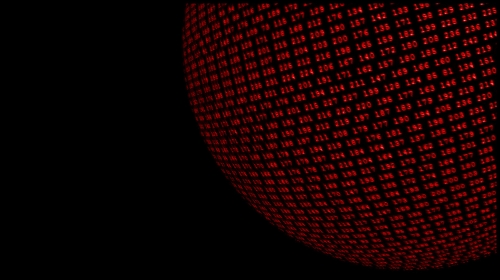Government Refusing To Say Whether Phone Tracking Evidence Came From Mass Surveillance


In criminal cases, defendants have a right to know what evidence the government plans to use against them and how the government gathered that evidence. This basic due process principle is essential: it allows defendants to test in court whether law enforcement officers obtained evidence in violation of the Fourth Amendment. But in a new legal brief, the government has refused to confirm or deny whether it relied on constitutionally questionable mass surveillance programs to gather evidence for a criminal prosecution.
The government filed its brief in United States v. Diaz-Rivera, a federal case in California that may be the first chance for a court to assess the constitutionality of the DEA’s Hemisphere Project, which made headlines in September when its existence was first reported, by The New York Times. Under the program, AT&T employees work alongside DEA agents, providing access to an enormous database of AT&T phone call records stretching back to 1987. The ACLU, ACLU of Northern California, and Electronic Frontier Foundation filed an amicus brief in the case last month. (We previously wrote about the case and our amicus brief here).
During the investigation in this case, the government obtained records of more than 700,000 calls from hundreds of phones. Mysteriously, the government repeatedly and quickly learned the new phone numbers of the targets of its investigation when they switched to new phones, but it has steadfastly refused to explain how it was able to do so—including in its new brief. According to a government document published by The Times, the Hemisphere Project is “most often used . . . to identify replacement/additional phones.” Because it appears that the government may have used Hemisphere or possibly information from NSA surveillance in this case, the defendants asked for more information about the government’s investigation. The government’s response is troubling for several reasons:
- The government refuses to confirm or deny whether Hemisphere, the NSA mass call tracking program, or other surveillance programs were used in the investigation, citing the Classified Information Procedures Act. This is an odd claim as to the Hemisphere Project, since the government’s own documents state that “Hemisphere is an unclassified program.” More importantly, if the government believes relevant information is classified, there are well-established procedures for providing a defendant’s lawyers with access to crucial information while keeping legitimate secrets confidential. Often, that includes allowing defense attorneys to seek the appropriate security clearance. Excessive government secrecy should not trump the due process rights of criminal defendants.
- The government acknowledges that it got many of the call records in this case using administrative subpoenas, but refuses to turn over copies of those subpoenas—even though they may well show whether the government relied on Hemisphere or another program in its investigation. The government’s reasoning is circular: it says that even if the subpoenas were to demonstrate that Hemisphere or, for instance, the NSA’s mass call tracking program was used, those programs are constitutional, so the defendants would have nothing to gain by challenging them. But the constitutionality of these programs is precisely the issue—and it is a question that has never been addressed by any public court. Indeed, both the ACLU and EFF have filed pending lawsuits challenging the legality of the NSA’s mass call tracking program. The government must disclose whether it relied on these surveillance programs so that the court can decide whether the government’s investigation of the defendants violated the Constitution.
- The government relies on a 1979 case, Smith v. Maryland, to argue that people have no reasonable expectation of privacy in their phone records under the Fourth Amendment. But that case involved collection of just a few days’ worth of dialing information about a single phone. Hemisphere involves searching a database containing billions or trillions of phone records and analyzing individuals’ communications over an extended period of time. The Smith opinion simply can’t justify the kind of mass surveillance the government is engaged in now.
- The government also asserts that the Fourth Amendment is not implicated because “many of the telephones at issue in this investigation were subscribed under false names.” A person does not lose the protections of the Constitution merely because they take steps to protect their anonymity. There are many legitimate reasons someone might use a pseudonym to open a cell phone account: to engage in anonymous political speech, to hide from an abusive partner or spouse, or to communicate confidentially with a reporter or a source. As the Supreme Court has explained, “[u]nder our constitution, anonymous [speech] ... is not a pernicious, fraudulent practice, but an honorable tradition of advocacy and of dissent.”
- The government states explicitly that it did not use “cell site simulators,” sometimes called “stingrays,” in this case to track the defendants’ cell phones or monitor their calls. Leaving aside the fact that federal investigators have withheld important information from judges about their use of these devices in the past, it is interesting that the government decided it could disclaim any use of stingrays, yet refuses to confirm or deny the use of other surveillance techniques. That doesn’t prove that other programs were used, but it certainly raises questions.
The government’s failure to notify criminal defendants of its reliance on controversial surveillance programs is nothing new. Indeed, we recently learned that prosecutors failed, for five years, to give defendants similar information related to surveillance under the FISA Amendments Act. The principle in this case is no different: Especially when a person’s liberty is at stake, the government must disclose the source of its evidence, so that a court can decide whether law enforcement has run afoul of the Constitution.



